Dec
20
2013

God loves His architecture. The first chapter of the Bible is architecture. The books of Moses and the book of Revelation are filled with architecture, and the same floorplan underlies every book in between. Most Christians don’t understand the Bible’s architecture and modern Christians not only do not understand it, they do not care for it. But God loves His architecture. To love the Bible one must love its architecture. To understand the Bible, one must let the architecture inform one’s understanding.
Continue reading
Comments Off | tags: Abel, Baptism, Cain, Circumcision, Covenant curse, Covenant Theology, Genesis, High Priest, Numbers, Peter Leithart | posted in Biblical Theology, Quotes
Nov
19
2013
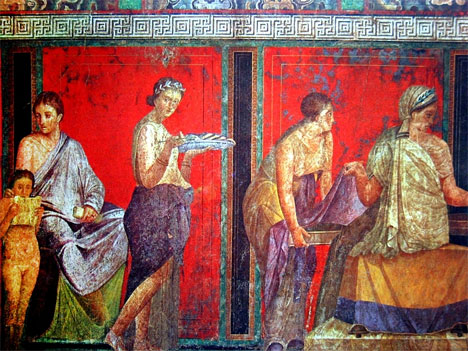 Part III – The Feast of Clouds
Part III – The Feast of Clouds
“But Peter said, ‘I have no silver and gold, but what I do have I give to you.”’ (Acts 3:6)
Israel consistently failed to keep the final feast, the Feast of Sukkot, because she took her calling to be elitist rather than priestly. She thought her calling, gifts and purification were for herself, rather than for the healing of the nations.
Continue reading
Comments Off | tags: Acts, Babylon, Baptism, Covenant Theology, Daniel, Esther, Feasts, Lampstand, Paul, Pentecost, Tabernacles | posted in Bible Matrix, Biblical Theology, The Last Days, The Restoration Era
Nov
11
2013
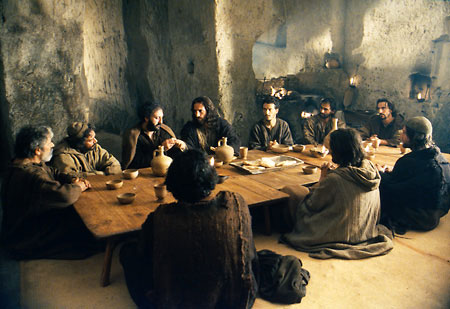
“The Lord’s Table is for dangerous people.”
If you are going to baptize infants, it makes sense that you would also allow them to take Communion. Baptism brings one into the priesthood (through the Laver) to the court of God, and Communion is fellowship in the priestly kingdom. To unite the two is consistent—as consistent as the two pillars flanking the threshold of Solomon’s Temple.
Continue reading
Comments Off | tags: Baptism, Circumcision, Communion, Ecclesiology, Federal Vision, God's Kitchen, James Jordan, John, Lampstand, Passover, Sacraments, Tim Gallant | posted in Biblical Theology
Oct
30
2013

“And as he prayed, the appearance of his countenance was altered, and his clothing was white and glistening.” (Luke 9:29, King James 2000 Bible)
The Tabernacle was covered in three layers: linen, red-dyed ramskin, and a third layer of tachash. What’s tachash? The word is a mystery, and there have been many suggestions concerning its meaning, from unicorn to dolphin. But perhaps that mystery has now been solved. And the glistening solution is nothing like you’d imagine in a million years.
This post has been slain and resurrected for inclusion in my 2015 book of essays, Inquietude.
Continue reading
3 comments | tags: Baptism, Esther, Exodus, Ezekiel, High Priest, James Jordan, Job, Leviathan, Tabernacle, Temple | posted in Bible Matrix, Biblical Theology, Creation, Quotes
Oct
28
2013
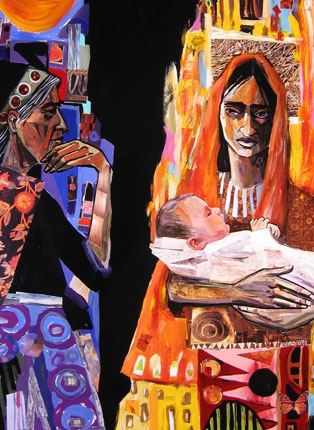 Born from Above
Born from Above
I’m currently working hard on Bible Matrix III: The House of God. This third volume is bigger on the inside than it is on the outside. It really is. Being so engrossed in the shape and processes of the Bible (yes, even more than usual), it has struck me how foreign the various theological schools’ thinking and speech is to the actual text.
The debates about “Pauline Theology” are the perfect example, especially the focus on narrow (yet important) topics such as justification. An academic divides and redivides the text in the way an expert in any science overspecializes. He ends up knowing everything about nothing. After spending a few hours each day wandering and describing the halls of biblical architecture, I am more convinced than ever that the only way to fully understand Scripture is architecturally. This is because, for our glorious God, architecture is ethics, and ethics is architecture. Divorced from the biblical mud map, the Edenic grid, modern theologians are discussing less than a dim distorted reflection of the book God has given us. They are feeling their way around the house with their eyes shut. Continue reading
Comments Off | tags: Abraham, Baptism, Circumcision, Covenant Theology, Deuteronomy, Exodus, Feasts, Galatians, Genesis, Literary Structure, Moses | posted in Bible Matrix, Biblical Theology
Oct
18
2013
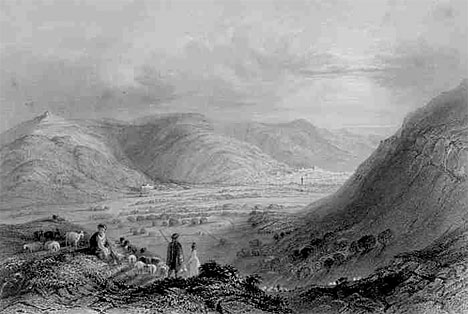
Paul’s Deuteronomy
That day Moses charged the people, saying, “When you have crossed over the Jordan, these shall stand on Mount Gerizim to bless the people: Simeon, Levi, Judah, Issachar, Joseph, and Benjamin. And these shall stand on Mount Ebal for the curse: Reuben, Gad, Asher, Zebulun, Dan, and Naphtali. (Deuteronomy 27:11-13)
Paul now moves into the Deuteronomy section of his epistle to the Galatians, and it becomes clear that, structurally-speaking, Galatians gets no further than Moses. The epistle is fivefold in nature, a recapitulation of the Torah, and thus it ends on the wilderness side of the Jordan. Like Moses, Paul will not live to see the new order, except from afar.
Continue reading
Comments Off | tags: Baptism, Circumcision, Covenant curse, Deuteronomy, Galatians, Literary Structure, Moses, Paul | posted in Bible Matrix, Biblical Theology, Ethics, The Last Days
Oct
12
2013
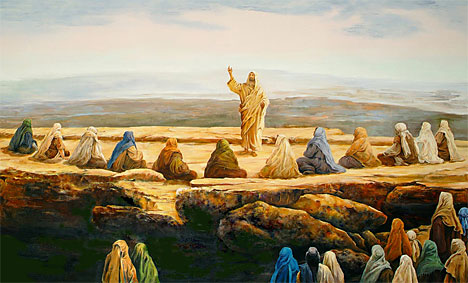
And he opened his mouth and taught them, saying: “Blessed… Blessed…”
(Matthew 5:2-11)
Part 1 is here.
From the mouth of God, (Initiation)
Adam received a natural breath (Delegation)
that he might tend to natural things. (Presentation – priesthood)
He then received spiritual words (the Law). (Purification – kinghood)
He was to repeat these spiritual words (Transformation – prophethood)
that he might receive spiritual (ethical) breath (Vindication)
and become himself the source of spiritual words. (Representation)
Continue reading
Comments Off | tags: Abraham, AD70, Baptism, Covenant Creationism, Covenant Theology, Gensis, Literary Structure, Noah, Sermon on the Mount, Tabernacle of David | posted in Against Hyperpreterism, Bible Matrix, Biblical Theology, Ethics
Oct
7
2013

“The Spirit consistently puts earthly Succession to death, dividing families, communities and entire countries, as we see today. To claim otherwise is to work against the Spirit in the world. My heredity, my household, my culture, is the target of my ministry, not its source.”
It’s time to get back into Galatians. To recap, the epistle follows the Covenant structure, but gives the central point, the Ethics, its own Covenant structure. If this thesis is correct, what we should expect in the next “cycle” (Gal. 3:26-4:7) is a discussion of Covenant Succession. Lo and behold, this is exactly what we find.
Continue reading
2 comments | tags: Abraham, Baptism, Circumcision, Covenant Theology, Ezra, Galatians, Genesis, Isaac, Leviticus, Moses | posted in Bible Matrix, Biblical Theology
Oct
2
2013
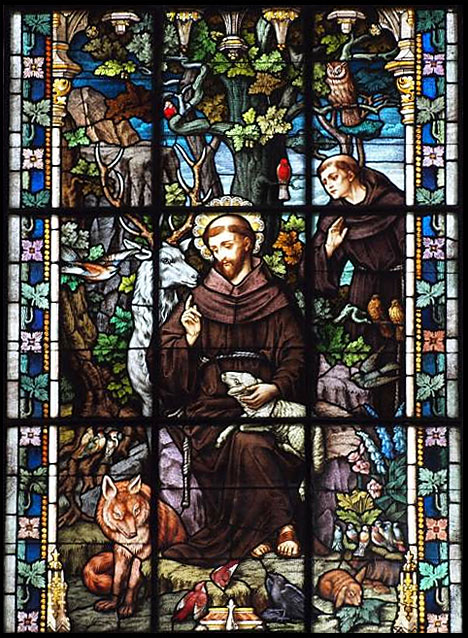
A Guest Post by Chris Wooldridge
Hi Mike,
I’ve been looking at the usual places in the Old Testament from where Paedobaptism is normally defended and I think I’m leaning fairly solidly in the credobaptist direction now. Here’s why:
Continue reading
4 comments | tags: Baptism, Chris Wooldridge, Humour, Peter Leithart | posted in Biblical Theology, Quotes
Oct
1
2013
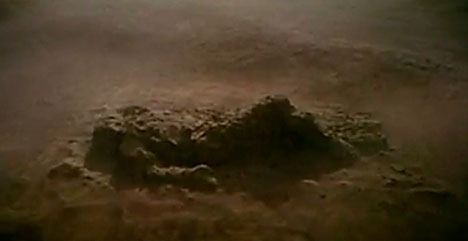
There are heavenly bodies and earthly bodies,
but the glory of the heavenly is of one kind,
and the glory of the earthly is of another.
(1 Corinthians 15:40)
Did Adam receive the Spirit of God? If he did receive the Spirit, was the Spirit taken away when he sinned?
This post has been slain and resurrected for inclusion in my 2015 book of essays, Inquietude.
Continue reading
Comments Off | tags: AD70, Baptism, Covenant Theology, Feasts, Genesis, Tabernacle, Tabernacle of David | posted in Against Hyperpreterism, Bible Matrix, Biblical Theology, Creation



































